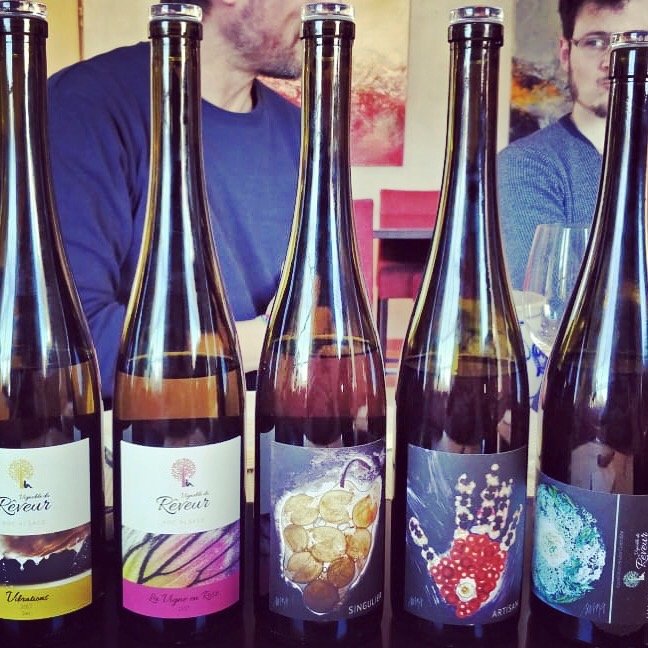“no more doubts, when wines go wrong”. Wine courses that enable both casual drinkers and professionals to taste, identify, and address common wine faults
The problem we All wine Lovers have in common…
Regular wine drinkers and serving wine professionals share only one embarrassing moment of self-doubt and confusion.
When a wine does not smell or taste as it should.
A common puzzling moment occurs when you order wine by the bottle or glass at a restaurant or bar. You might sense the wine's aromas are muted, dead, or noticeably absent, followed by a flat, flavourless palate or you smell nail-barnish with hints of cooked fruit. This wine is likely tainted with minuscule amounts of TCA or has been carelessly left open for too long, becoming oxidized.
The wine will not provide the drinking pleasure or deliver the value-for-money experience intended by the winemaker.
It should be returned, discarded or the paying customer should have that bottle replaced.
No more doubts when wines go wrong.
The Wine Faults Academy courses provide essential background knowledge and equip regular wine drinkers and professionals with a comprehensive reference workbook, key facts, and—most importantly—hands-on tasting experience of as many faults, flaws, and taints as we can meaningfully recreate in the classroom.
Lightstrike, Reduction, Oxidation, Volatile Acidity, Cork Taint, Brettanomyces and more.
Our goal is to prepare you to recognize, identify, and address common wine faults that may spoil your wine experience or that of your customers.
Register for one of our courses today.

TCA - cork taint experience
We are helping you with the biggest cause of confusion in a restaurant for customers and wine service personnel: TCA. In minuscule quantities, TCA starts affecting the flavours and aromas of wine well before the strong, wet cardboard, dusty, musty aromas are present.
We have experimented and designed a unique cork taint experience that will allow you to smell and taste flights of glasses with different levels of TCA. You will understand your personal (individual) detection threshold and how various levels of TCA affect different styles of wine: white wines vs. strong-flavoured reds.
Next wine Courses - For Regular Wine Drinkers - Sat 22nd March
Wine Taints and Faults - for regular wine Drinkers
Day course: 7hrs
Identify and describe common wine faults by smell and taste.
Trust your instincts and never feel ashamed, stupid, or inferior in a restaurant (or bar) when your nose and palate tell you something is wrong—even if the wine server challenges your judgment or serves you an un-fresh fruit, vinegary, carelessly oxidised wine by the glass.
You will be able to improve your wine experience by knowing how to select wines on the supermarket shelves, how to store them and how to prevent “you” from being responsible for wine spoilage.
Happy deviations - The world of natural wines
DAY COURSE: 4 HRS
Coming soon
Imperfections or minor flaws enhance (or are intrinsic to) the tasting experience of wine created as an art form, and as in many aspects of our human life, imperfections can be attractive.
In low intervention wines, deviations and minor flaws can be enjoyed.
Let’s discover the differences between organic, biodynamic, natural and macerated wines (orange), as well as the line between tolerable flaws and serious faults in natural wines.
Wine Taints and Faults - for wine professionals
2 Days course: 12hrs
Coming soon
Wine professionals (myself included) encounter fewer cork taint issues today. However, the problem isn't always obvious cardboard aromas and muted fruit in the glass. We often face moments of doubt and confusion when we need absolute clarity—after all, we have a service to deliver and customers are counting on us.
In the course we experience wine faults in isolation, one at a time. If you've ever wondered how Brettanomyces yeast affects a light Pinot Noir versus a full-bodied, oaky South African Cabernet Sauvignon, or what oxidation smells like without volatile acidity, this course is for you.
“I doubted and almost let the wine go after the waiter said “There is nothing wrong with it - just oak” but even if my wife disapproved, I insisted. The waiter took the glass to his superior, who confirmed my initial suspicion of a fault. Soon after, an apology was followed by a vibrant, fresh and fruity new glass of Pinot Noir ”






